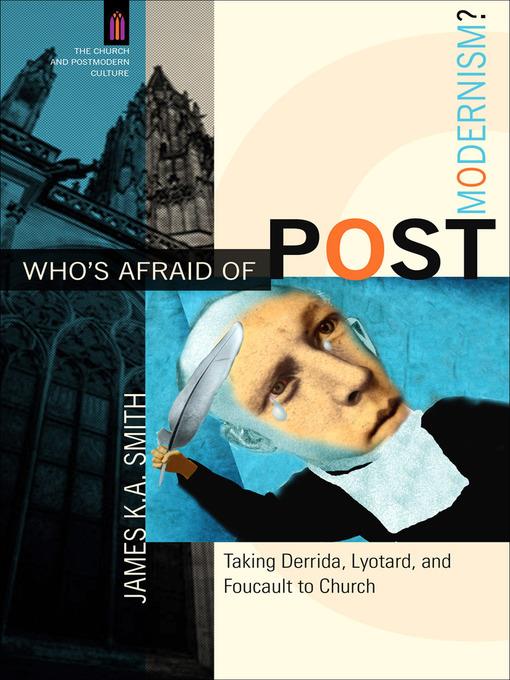
Who's Afraid of Postmodernism? Taking Derrida, Lyotard, and Foucault to Church
The Church and Postmodern Culture
کتاب های مرتبط
- اطلاعات
- نقد و بررسی
- دیدگاه کاربران
نقد و بررسی

Starred review from January 30, 2006
Christians who think that "Lyotard" is something worn by gymnasts ought to investigate this unusual book, which aims to make accessible the philosophical and religious contributions of three postmodern thinkers: Jacques Derrida, Jean-François Lyotard and Michel Foucault. Smith, a philosophy professor at Calvin College, does this cleverly by employing illustrations and examples from such films as The Matrix
; Memento
; One Flew over the Cuckoo's Nest
; O Brother, Where Art Thou?
; and, surprisingly but successfully, The Little Mermaid.
Along the way, Smith also dissects the popular teachings of postmodern writers like Brian McLaren (reviewed and interviewed in this issue), Leonard Sweet and Robert Webber. At times, the language is decidedly academic ("heuristic," "metanarrative" and "epistemology" make routine appearances), and the book tends to assume a basic familiarity with philosophical debates. Still, it's one of the most accessible introductions to postmodern thought to date, and its concluding chapter—in which Smith brilliantly employs the movie Whale Rider
to explore how Christianity might be simultaneously faithful to tradition and open to change—is alone worth the price of admission. Ironically but persuasively, Smith argues that postmodern Christianity's most powerful contribution could be a return to ancient, premodern church traditions and liturgy.

June 15, 2006
In the second century, the Christian writer Tertullian argued for the incompatibility of Athens (philosophy) and Jerusalem (Christianity). Smith (philosophy, Calvin Coll., Grand Rapids, MI; "Introducing Radical Orthodoxy") is no Tertullian; in this first installment in -The Church and Postmodern Culture - series, he baptizes the thought of the three titular French philosophers -for use by the contemporary church in constructing its identity. He opens each chapter referencing a film, in one instance using "One Flew Over the Cuckoo's Nest "to portray the ways in which one person can subvert an all-knowing, all-watching power, a subject about which Foucault writes. Smith believes that the church can use Derrida's notion that -there is nothing outside the text - to reinvest its focus on community, interpretation, and Scripture with new meaning. Similarly, he feels that contemporary Christianity can embrace Lyotard's emphasis on meta-narratives as an affirmation of the power of storytelling and adopt Foucault's ideas of discipline as a new way of understanding discipleship. While Smith's writing can be lively, his discussions often bog down in academic jargon. The book will find a home in seminary libraries, where these issues might be debated, but not in public libraries, where they are of little consequence." -Henry L. Carrigan Jr., Lancaster, PA"
Copyright 2006 Library Journal, LLC Used with permission.

























دیدگاه کاربران